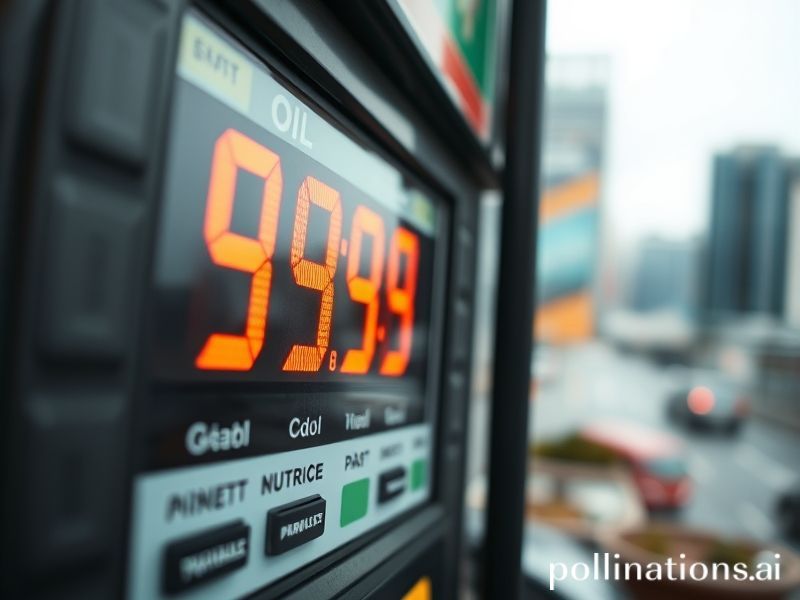Crude Awakening: Why Oil Prices Are the New Internet Obsession
# **Crude Awakening: Why Oil Prices Are the New Internet Obsession**
If you’ve been on the internet lately, you’ve probably seen oil prices trending more than a celebrity’s latest drama. But why is everyone suddenly so obsessed with the price of crude? Is it because we’re all secretly aspiring economists, or is there something deeper (and stickier) going on? Let’s dive in.
### **The Cultural Context: From Gas Pumps to Twitter Feeds**
Oil prices have always been a hot topic, but they’ve recently become the ultimate watercooler conversation—except the watercooler is now your Twitter feed, and the conversation is about whether you can afford to fill up your tank. The rise in oil prices has sparked memes, think pieces, and even debates about whether we should all switch to bicycles (spoiler: we probably should, but good luck convincing your commuter self).
The cultural significance here is huge. Oil isn’t just a commodity; it’s a symbol of global interconnectedness. When oil prices spike, it affects everything from the cost of your morning coffee to the price of your next vacation. And in an era where everyone is hyper-aware of their spending, oil prices have become a barometer for economic anxiety.
### **The Social Impact: More Than Just a Fill-Up**
Let’s be real: nobody likes paying more for gas. But the social impact of rising oil prices goes beyond just your wallet. It’s about accessibility, equity, and even climate change. Higher oil prices can make public transportation more appealing (hello, sustainability!), but they can also disproportionately affect low-income households who rely on cars for work and daily life.
And let’s not forget the geopolitical drama. Oil prices are a global thermometer, reflecting tensions, sanctions, and supply chain disruptions. When oil prices rise, it’s often a sign that something big is happening somewhere in the world. So, while you’re grumbling about the cost of gas, you’re also getting a crash course in international relations.
### **Why It’s Significant: The Ripple Effect**
Oil prices are like the dominoes of the global economy. When they rise, they trigger a chain reaction that affects industries, jobs, and even political stability. For example, higher oil prices can lead to inflation, which in turn can influence central bank policies and interest rates. It’s a domino effect that starts at the gas pump and ends in the halls of power.
But here’s the twist: the conversation around oil prices isn’t just about economics. It’s also about sustainability and the future of energy. As the world grapples with climate change, the debate around oil prices is increasingly tied to the transition to renewable energy. Are we seeing the beginning of the end for fossil fuels, or just another cycle in the never-ending oil saga?
### **Conclusion: The Bottom Line**
Oil prices are trending because they’re a mirror to our collective anxieties, aspirations, and contradictions. They’re a reminder that we’re all connected, whether we like it or not. So, the next time you see oil prices trending, remember: it’s not just about the cost of gas. It’s about the cost of living, the cost of doing business, and the cost of our collective future.
And who knows? Maybe one day, we’ll look back on this era and laugh about how we all freaked out over a few cents per gallon. But for now, let’s keep the memes coming and the conversations going.
—







